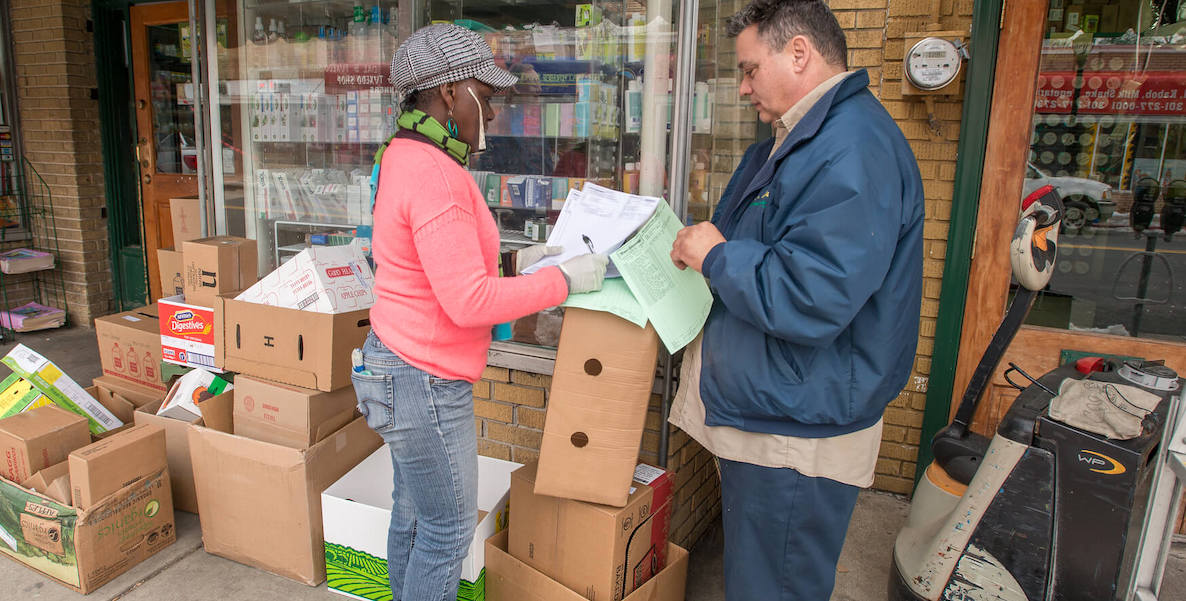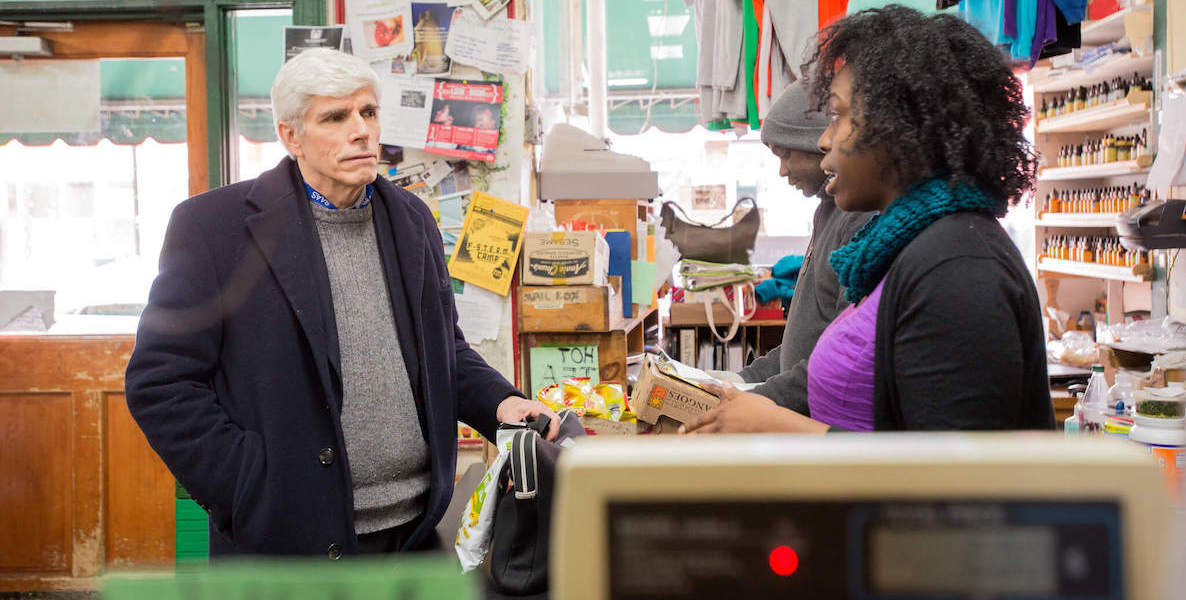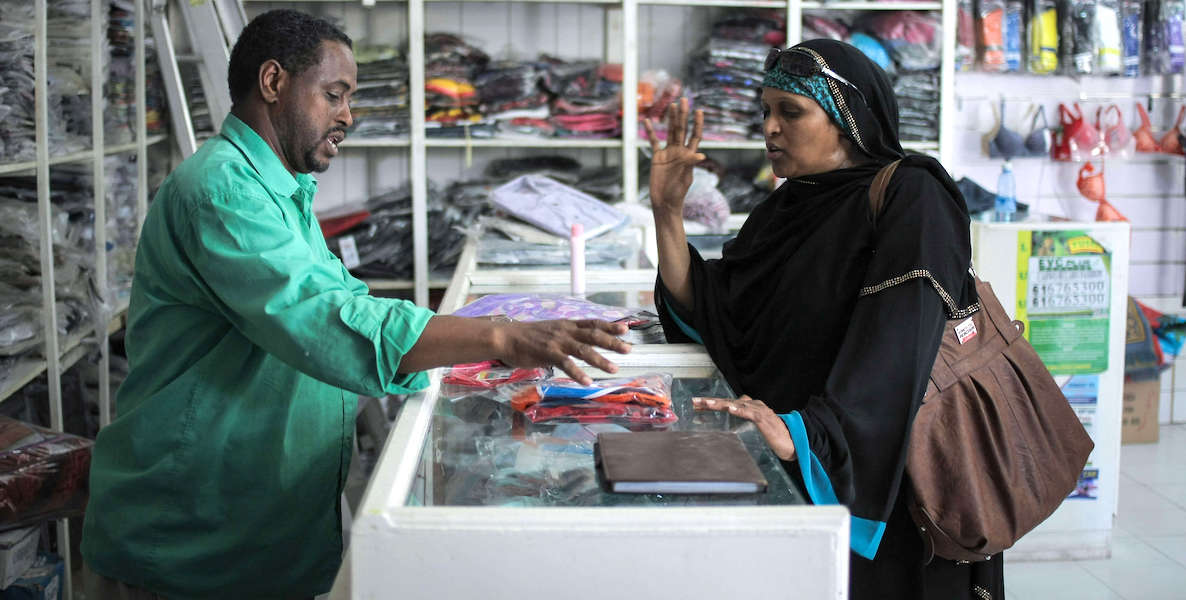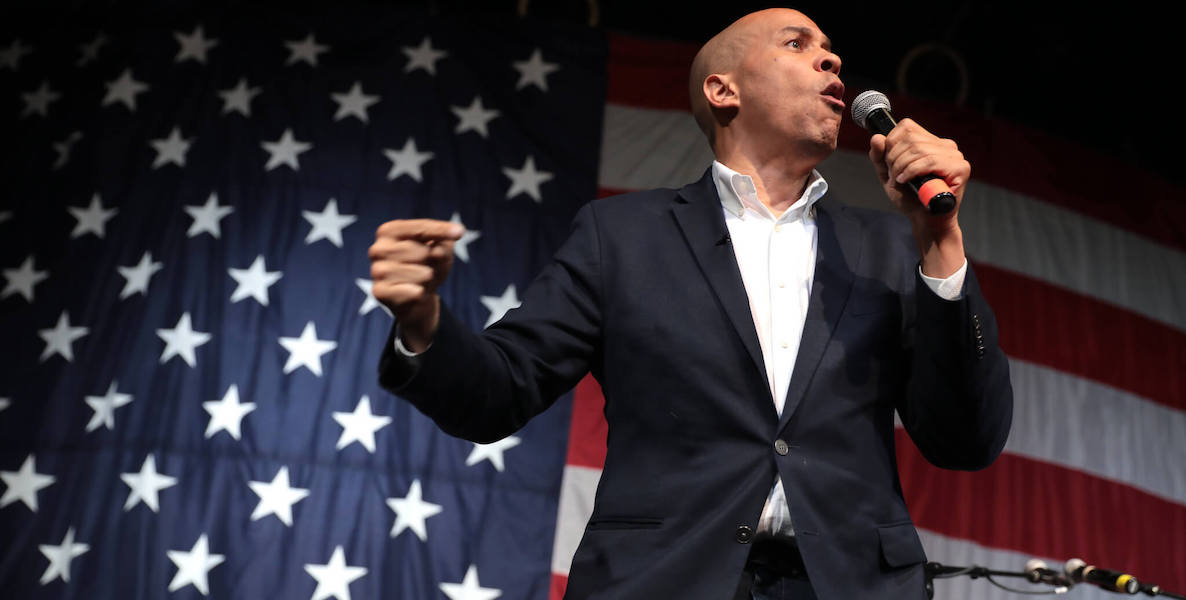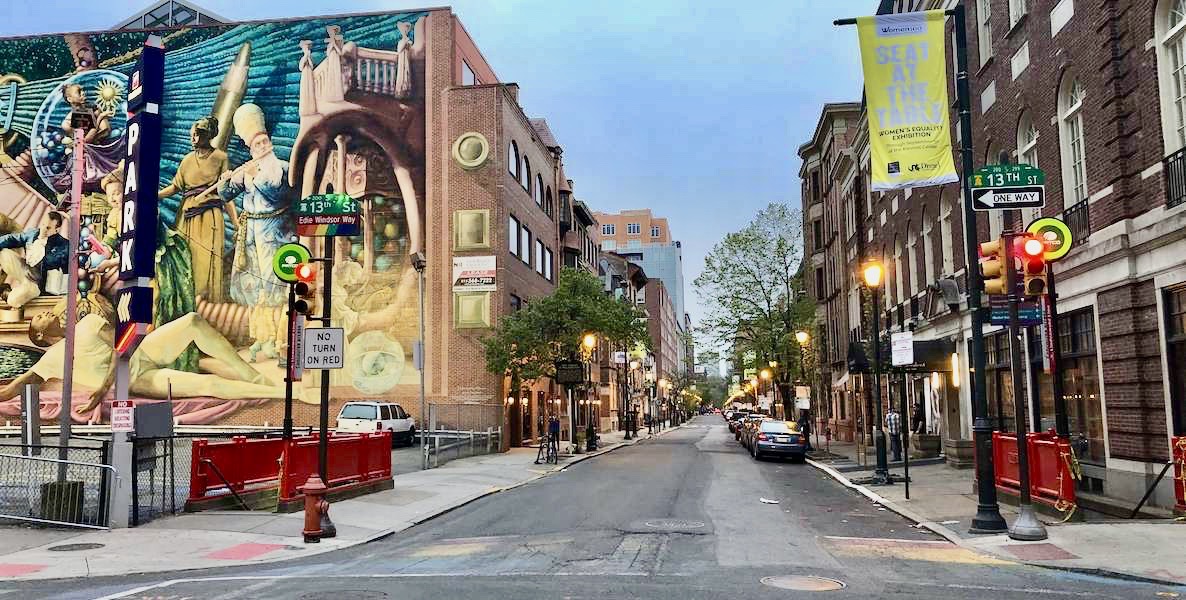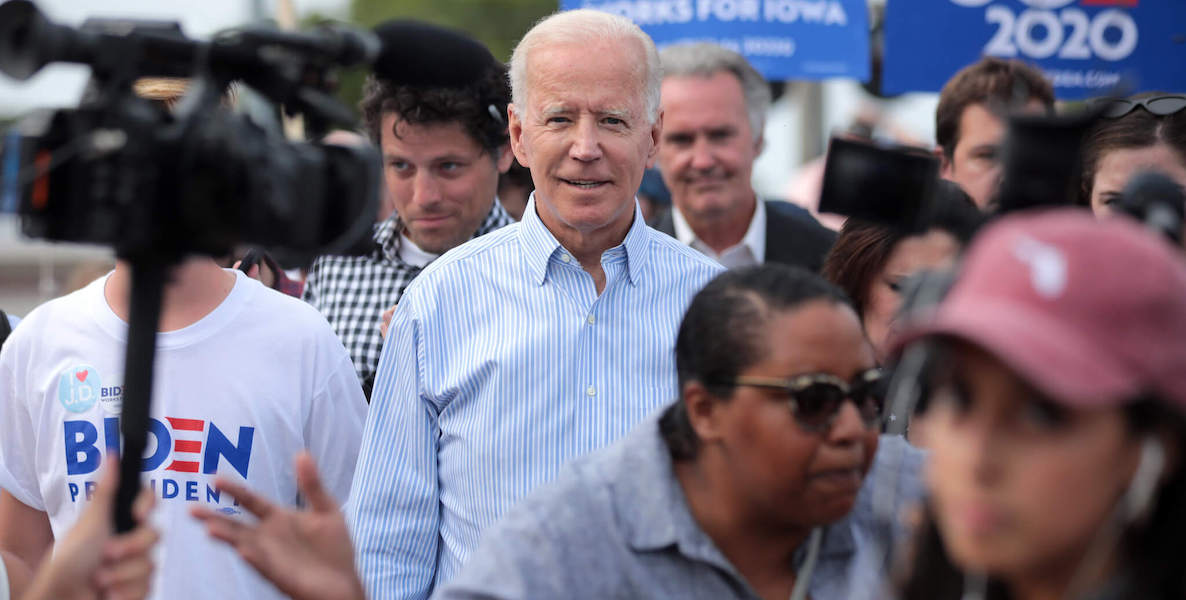We spent much of last year detailing how the Covid-19 crisis has decimated small businesses, especially Black– and Latino-owned businesses, which have long faced challenging headwinds in the U.S. economy. In order to address these challenges, a group came together to author Big Ideas for Small Business, emphasizing the need for transformative action by the federal government, the financial industry, states, localities, corporations, and other private institutions to reshape our economy so that it works for small businesses, especially Black-, Latino-, and Women-owned businesses.
To that end, we were heartened to see a strong focus on procurement and data transparency in President Biden’s “Executive Order On Advancing Racial Equity and Support for Underserved Communities Through the Federal Government.” In it, President Biden calls on the federal agencies to conduct an Equity Assessment, with a particular focus on barriers to agency procurement and contracting opportunities, which would then lead to a plan to address those barriers. Another, related, executive order was signed just weeks later, the Made In America Executive Order, which highlights that federal contracting accounts for nearly $600 billion every year.
The federal government works best when it truly reflects the hard-earned wisdom of those who deliver and implement the policies made in Washington.
Both Executive Orders are good and necessary first steps to making the nation’s public procurement system more equitable. Following through on the full potential of these executive orders, though, will require the Biden Administration to ground federal policy reform in local experience and practice. Federal policies, in our view, work best when they are reverse-engineered to reflect the hard-earned wisdom of public, private and civic institutions, including state and local governments, universities, hospitals, and corporations.
Simply examining contract volume shows how important these local institutions are when it comes to procurement. Although the federal government is the largest individual purchaser of goods and services in the U.S., that total dollar amount is dwarfed by the total public purchasing power of states and localities.
![]() Through their own revenues, alongside funds from the federal government, states and localities procure an estimated $1.5 trillion every year (this is over twice what the federal government spends on contracts). Fortune 1000 companies also likely spend approximately $1 trillion annually, while hospitals and universities spend approximately another $500 billion combined. While their decision-making is more distributed than that of the federal government, these different levels of purchasing institutions represent a nearly $3 trillion opportunity for the Biden Administration to amplify its impact on equity through procurement.
Through their own revenues, alongside funds from the federal government, states and localities procure an estimated $1.5 trillion every year (this is over twice what the federal government spends on contracts). Fortune 1000 companies also likely spend approximately $1 trillion annually, while hospitals and universities spend approximately another $500 billion combined. While their decision-making is more distributed than that of the federal government, these different levels of purchasing institutions represent a nearly $3 trillion opportunity for the Biden Administration to amplify its impact on equity through procurement.
State and Local Leadership: Reverse Engineer Public Procurement Reform
The federal government should learn from the state and local governments that have generated innovative solutions to increasing procurement from and contracting with Black-, Latino-, and woman-owned businesses, often called Minority- and Women-Business Enterprises (MWBEs).
Lessons should start with three key areas: (1) raising up state and local innovations; (2) lowering counter-productive barriers to local diverse procurement efforts; and (3) focusing with urgency on the relationship between MWBE construction firms and public authorities.
Raise Up State & Local Innovations: As we highlighted in our report last year about state support for Black-owned businesses, state and local governments have been leading in their commitments to MWBEs. New Jersey’s Small Business Set-Aside Program and California’s Utility Supplier Diversity Program are both state-level programs that have similar objectives and challenges as the supplier diversity programs at the federal level.
More recently, city leadership in Birmingham, Alabama committed to doing an internal assessment of its own spending with Black-owned businesses, through its VITAL program, and later brought nine leading corporations along, all committed to greater data transparency and with it, greater accountability. Working closely with state and local governments will allow them to feed innovative solutions into the federal government, as well as provide opportunities for horizontal learning among state and local governments.
Lower Counterproductive Federal Barriers to Local Efforts: In collaboration with state and local governments, the federal government must also consider how local and state governments may be constrained in how they can expand support to Black-, Latino-, and Women-owned businesses when they are using funds provided by the federal government. Above and beyond conducting an assessment on the challenges of procurement at the federal level, the Biden Administration ought to consider how federal regulations and stipulations encourage or hamper better procurement practices at the local level.
Focus First on Construction Firms and Public Authorities: Efforts to scale successful local programs and to reduce federal barriers to local efforts should focus first on the interaction between MWBE construction firms and public authorities. Such a focus is especially urgent given the likelihood of countercyclical federal investments in infrastructure, and the persistent financial and bureaucratic barriers faced by MWBE construction firms. Without intervention we miss a tremendous opportunity to narrow the racial wealth gap through the recovery.
Utilize the L.A. Metro Model: L.A. Metro should serve as a model on all fronts. The Agency, led by Phil Washington, has developed an innovative way to leverage federal spending for growing diverse suppliers through two programs. Current federal regulations require that agencies receiving federal funds have a disadvantaged business enterprise (DBE) program, requiring both revenue and employee limits. Given the “pass through” nature of much construction revenue, these qualifying caps can disincentivize MWBE businesses—especially those in construction—from maturing into medium-sized businesses in order to meet Small Business Administration (SBA) standards.
L.A. Metro established two local innovations to solve this problem. They developed a Medium-Sized Business Program and a Small Business Prime Program, to support small businesses with tools to “get certified and grow.” LA ![]() Metro’s Small Business Prime Program sets aside applicable contracts—up to $5 million—for which only Metro certified Small Business Enterprises (SBEs) can compete, opening a direct route to contract opportunities. Their innovative Medium-Sized Business Enterprise Program was established for firms that are not a subsidiary of another firm, and have gross annual receipts of $25 million and a max of 250 employees. These firms are certified by the LA Metro and have a separate pool of contract bidding where they compete against each other for contracts between $12 and $30 million.
Metro’s Small Business Prime Program sets aside applicable contracts—up to $5 million—for which only Metro certified Small Business Enterprises (SBEs) can compete, opening a direct route to contract opportunities. Their innovative Medium-Sized Business Enterprise Program was established for firms that are not a subsidiary of another firm, and have gross annual receipts of $25 million and a max of 250 employees. These firms are certified by the LA Metro and have a separate pool of contract bidding where they compete against each other for contracts between $12 and $30 million.
The Bottom Line: Along with other first mover public authorities like the Washington D.C. and Chicago Departments of Aviation, LA Metro’s sector-specific approach to supplier diversity could represent a nationally scalable model for leveraging infrastructure spending through the post-COVID recovery — scaling effective models from the bottom up, and thoughtfully lowering barriers from the top-down.
University, Hospital, and Corporate Supplier Diversity: Procurement from Other Large, Complex, Organizations
Beyond the obvious connections to local and state governments, there has been an explosion of new collaborative efforts among local institutions focused on changing how procurement is conducted. Programs like BLocal in Baltimore, Philadelphia Anchors for Growth and Equity (PAGE), and the Chicago Anchors for a Strong Economy (CASE), and the national Healthcare Anchor Network out of The Democracy Collaborative all represent a growing effort to change anchor institution buying practices towards more inclusive and sustainable aims.
Federal policies, in our view, work best when they are reverse-engineered to reflect the hard-earned wisdom of public, private and civic institutions, including state and local governments, universities, hospitals, and corporations.
Universities and hospitals are figuring out how to work together, address common challenges and opportunities, standardize and share data, and change how procurement is done in large, complex, institutions with tremendous buying power. These lessons and actors should be a large area of emphasis for federal efforts.
Encourage Best-Practices Transfer and Adoption Through Federal Funding: Like state and local governments, universities and hospitals receive hundreds of billions of dollars in federal funding every year, from research grants to Medicare reimbursements. With a focus on procurement with federal dollars, the Biden Administration could identify ways for all recipients of federal funding to level-up to the leading institutions.
The federal government should also encourage the adaptation and transfer of best practices from these cutting-edge institutions, and ought to consider how federal funding, distributed to universities and hospitals, can be used to encourage contracting and procurement with Black-, Latino-, and Women-owned businesses—for example, through the provision of technical assistance and creation of outcome-based incentives.
Learn from State and Local Efforts Around Transparent Spend Reporting: This is also a space where state and local consultation may be informative. Illinois, for example, requires all institutions of higher education to report their MWBE spending, while Indiana similarly requires MWBE reporting for public institutions. In Big Ideas for Small Business, we called for the federal government to “establish a new, transparent reporting regime for public, corporate, and anchor institutions.” Emerging examples, like PAGE in Philadelphia, can inform such a reporting regime that can increase transparency and opportunities for contracting and procurement for Black-, Latino-, and Women-owned businesses.
Learn from State Efforts Around Regulated Sector Reporting: States are well positioned to share best practices on how they ensure that regulated sectors, like utilities, level-up and increase procurement with MWBEs. The Illinois Commerce Commission, for instance, requires utilities to supply an annual report detailing their MWBE procurement and programs. Ameren, a leading utility in Illinois and Missouri, has an extensive supplier diversity program and detailed reports of their annual spending with MWBE suppliers across a range of commodities. This level of transparency and data detail is unparalleled and could be incorporated into federal efforts.
Large Corporations Have Relevant Lessons: The federal government should also be learning from large corporations that are leading the way on improving their supplier diversity. Last summer, we highlighted the Billion Dollar Roundtable, an organization of 28 major companies that spends over $1 billion annually directly with minority- and women-owned suppliers.
President Biden’s Made in America Executive Order made a firm commitment to supporting American businesses. Leading American businesses have found ways to make sure that their supply chains are composed of Black-, Latino-, and Women-owned businesses. Focusing on what they have done, and providing forums to scale these practices, is a good way to ensure that these buy-American efforts also advance broader racial equity and inclusion.
If done right, this could represent a new model of federal-to-local relations: it could unleash the full potential of the country in the service of addressing one of our most vexing injustices—the racial wealth gap.
The bottom line: By expanding the scope of the most recent executive order to consider the barriers to procurement and contracting associated with anchor institutions that receive and spend federal dollars, or are subject to federal regulation, there is an opportunity to have a significant multiplier effect and sustained transformation of the procurement landscape among different types of actors.
In Big Ideas for Small Business, we called on the federal government to “convene a blue-ribbon commission of leaders in supplier diversity from the public and private sectors, including leaders from major universities and hospital systems, Fortune 500 companies, and local and state governments.” To reach the full ambition of the President’s Executive Order, The Biden Administration should implement this proposal to work alongside agency Equity Assessments.
![]() How could this take shape? Perhaps a group of leading philanthropies and corporations can quickly organize a parallel Equity Assessment to inform the federal effort. Such a parallel effort could codify the trailblazing efforts among states and local governments, corporations and anchor institutions consortia in overcoming the challenges that Black-, Latino-, and Women-owned businesses face in accessing procurement and contracting opportunities.
How could this take shape? Perhaps a group of leading philanthropies and corporations can quickly organize a parallel Equity Assessment to inform the federal effort. Such a parallel effort could codify the trailblazing efforts among states and local governments, corporations and anchor institutions consortia in overcoming the challenges that Black-, Latino-, and Women-owned businesses face in accessing procurement and contracting opportunities.
By providing concrete solutions, this bottom-up effort can provide detailed and timely guidance on how the federal government alters the procurement and contracting rules governing its own spending as well as the spending that flows through public, private and civic organizations. By providing leading-edge examples of data collection and transparent reporting, this bottom-up effort can also speed the process by which common information can drive a new marketplace that easily matches buyer demand with business supply.
You get the picture. President Biden’s much-needed Equity Assessment offers a ripe opportunity to model a new kind of collaborative policymaking between the federal government and other layers of government and sectors of society. The days of federal policies being designed in a vacuum, by agencies talking to other agencies, should be over.
The federal government works best when it truly reflects the hard-earned wisdom of those who deliver and implement the policies made in Washington. If done right, this could represent a new model of federal-to-local relations that we wrote about last year: It could unleash the full potential of the country in the service of addressing one of our most vexing injustices—the racial wealth gap.
Bruce Katz is the Founding Director of the Nowak Metro Finance Lab at Drexel University. Ben Preis is a Doctoral student at MIT’s Department of Urban Studies and Planning. Colin Higgins is a Senior Research Fellow at the Nowak Metro Finance Lab.
Header photo by Gage Skidmore / Flickr


